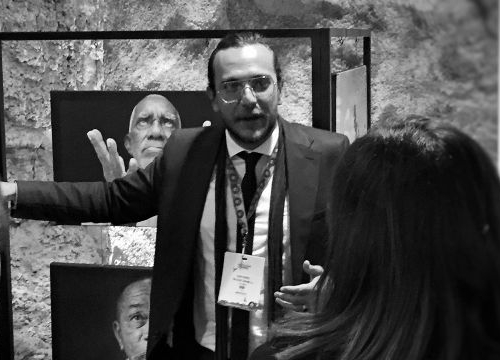MAS in Transitional Justice, Human Rights and the Rule of Law: What Alumni Say


Portrait of Juan Daniel Salazar
6 February 2020
A Colombian lawyer from Medellin specialized in human rights, international humanitarian law and transitional justice, Juan Daniel Salazar graduated in 2018 from our Masters of Advanced Studies in Transitional Justice, Human Rights and Rule of Law (MTJ). After teaching courses on human rights and transitional justice in two Colombian universities, he is now the Head of Cooperation and Strategic Alliances at Colombia’s National Center of Historical Memory (CNMH).
Tell Us About your Current Responsibilities
The CNMH is the national state institution in charge of the symbolic reparations for the victims of the Colombian armed conflict by guaranteeing the right to truth, both in its individual and collective dimensions and fostering guarantees of non-recurrence while upholding the duty of memorialization of the State. Such measures are necessary to rebuild the social tissue torn by the patterns of violence in a conflict that has lasted more than half a century. We are a platform through which the voices of the victims can be heard through recognition and dignification initiatives.
As Head of Cooperation and Strategic Alliances, my responsibilities imply two main tasks. I am in charge of developing cooperation strategies or alliances in order to amplify our work through strategic partners (NGOs, international or regional organizations, international cooperation agencies, universities, think tanks, and the private sector among others). I am also responsible for positioning the work of the CNMH at both the national and international levels through different exchange initiatives.
What are the Strengths of the Programme?
One of the biggest strengths of the programme is its multidisciplinary and holistic approach to the field of transitional justice. Such criteria involve both students and teachers, enriching the academic experience through exposure to different fields and backgrounds.
How was Teaching?
Having professors from such different backgrounds and approaches provide incommensurable benefit to the programme. Both theoretical and practical perspectives are fostered constantly in order to develop students’ critical analysis.
Your Best Memories of the Programme?
Studying with so many people from different parts of the world and professional backgrounds was one of the main highlights of my time in Geneva. Sharing with them their experiences has made me a better lawyer and human being.
I will always remember fondly our class trip to Nuremberg, the practical perspectives provided by Professor Unger, the passion of Professor Garibian or the profound questionings generated by Professor Mani (just to mention a few).
What did it bring to your career?
Studying at the Geneva Academy helped me acquire specialized knowledge in a field which is extremely relevant for the context of my country. The programme also gave me tools and skills to better understand the Colombian armed conflict as well as the ways of contributing to its transformation as a path to reconciliation.
Do you use what you learned in class in your work?
I am constantly using the knowledge acquired in the MTJ in my job, from basic concepts to elucidate frameworks and principles to having the skills to be proactive engaging internal and external stakeholders in processes related to symbolic reparations.
Would you Recommend It?
Definitely. The whole experience was absolutely inspiring, enrichening and transformative.








